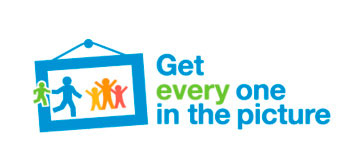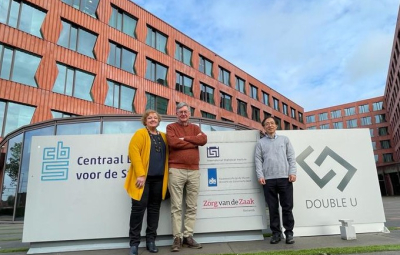Every day, everywhere, we see and hear statistics. Right now, we are being updated daily on COVID-19 infection rates and sadly, deaths. But how often do we hear stories about positive impacts of these statistics? Or positive impacts of the institutions and professionals involved in producing them, who contribute to public life in such a meaningful way?
Several weeks ago, came a news story from Afghanistan about women risking their lives to claim back their identity. A 24-year-old journalism graduate from a middle-class Afghan family shared the story of having an identity as a little girl, being able to use her name Sonia freely, but by the age of 10 cultural beliefs meant she was no longer known as Sonia. Her name, and her sister and mother’s names, are all forbidden outside of the family home by a tradition that says uttering a woman’s name in public brings shame on her and her family. Instead, women are defined by the names of men, and are referred to only as the daughter, wife, or mother of their nearest male relative. Sonia become someone’s daughter, wife, or mother.
What are some practical implications of this custom? Sonia’s name does not appear on wedding invitations. When she has children, her name will never appear on her children’s birth certificates (by Afghan law, only the father’s name is registered). When she dies, tradition dictates it is not her name that will appear on her own gravestone – it will simply list her as the wife, daughter, and mother of her male family members.
Mothers gather with children in the corridor of their apartment building. UN photo by Eric Kanalstein.
The news story was about a campaign known as #WhereIsMyName and how, on the third anniversary of their formation, the group took their fight to Afghanistan’s Parliament, demanding the inclusion of a mother’s name on birth certificates. And how after taking their demand for a mother’s name to be included on Afghan birth certificates to Parliament, the group caught the attention of Afghanistan’s President.
So, what caught my attention? The following couple of sentences, about three quarters the way through the article
Rohina Shahabi, spokeswoman for the National Statistics and Information Authority, said the proposal for the addition of a mother’s name was “under review” this week. “We had an order from the presidential office to prepare a proposal for amendments,” she said, adding that the proposal includes a clearly defined notation of both the father and mother’s names.
There it was. The Afghanistan National Statistical Office is asked by the President’s office to prepare an amendment that would give mothers an identity on their children’s birth certificates. Such a small change but one which would bring joy to so many. A joy most of us would not even recognise was a joy. And a joy professional statisticians are being asked to deliver.
One week later, more news from Afghanistan. The Afghan President Ashraf Ghani signed an amendment allowing mothers’ names to be included on their children’s birth certificates. The President signed the amendment after Parliament had delayed passing the changes. The story quotes Sonia as follows:
“I feel like a bird in a cage whose door has just been opened, achieving the dream of flying in the sky. My feeling of happiness may seem ridiculous for women in other countries, but when we live in a society where women are physically and spiritually excluded, achieving such basic rights is a big and difficult task.”
And again, the story reports on the central role of the Afghanistan National Statistical Office. Rohina Shahabi, a spokeswoman for National Statistics and Information of Afghanistan (NSIA), said once implemented, the inclusion of a mother’s name along with the father’s will be mandatory. But, she said implementing the changes would take time:
“We have to receive an official order to start working on the change,” Ms. Shahabi told the ABC. “It is too early to say how long it will take. Our team must look into our facilities and our practical capacity and then they will be able to say how long.”
But Ms. Shahabi said the changes would be made as soon as possible.
Bringing joy
This story from Afghanistan is just part of a bigger role National Statistical Offices and professional statisticians play in people’s lives. Across the world, Civil Registration and Vital Statistics systems provide the foundation for registering events such as births, deaths, and marriages and using the registration of such events to produce vital statistics.
Institutional arrangements vary but, in most countries, there are usually three main stakeholders involved in civil registration and vital statistics, namely the Civil Registration Office, a Ministry (such as Ministry of Health) and the National Statistical Office. As in the case of Afghanistan, the Civil Registration Office can be the same as the National Statistical Office[1].
Get Every One into the Picture
Well-functioning Civil Registration and Vital Statistics systems are a development priority in Asia and the Pacific. In 2014, Ministers agreed to a 10 year Asian and Pacific Civil Registration and Vital Statistics Decade, 2015-2024, to Get Every One into the Picture. The Decade represents a clear commitment to leave no one behind and place people firmly at the center of the 2030 Agenda for Sustainable Development.

In declaring the Decade, Ministers acknowledged Civil Registration and Vital Statistics are crucial for individuals as well as for society at large. Civil registration, and the personal documents it provides, give people a formal legal identity, civil status and recognize their key family relationships. Legal identity in turn provides access to a host of services and entitlements, ranging from schooling and banking, to claiming inheritances, a nationality, and a passport. In these times of COVID-19, legal identity provides access to social protection and health services.
Actually, the right to a legal identity is a human right. A legal identity including free birth registrations is also a target under the 2030 Agenda for Sustainable Development. A right which women in Afghanistan may soon have through the Presidential amendment and changes by the Afghanistan National Statistical Office.
And recognizing the critical roles of legal identity to the premise of leaving no one behind, the United Nations Deputy Secretary General in 2018 established the UN Legal Identity Expert Group which solicits expertise from the whole of the UN system to ensure a holistic approach to civil registration, vital statistics and identity management systems.
The Decade is supported by an agreed Regional Action Framework which offers measurable outcomes reflecting progress towards the commitments of national governments and development partners. At the beginning of the Decade, countries from East and North-East Asia and North and Central Asia had already high birth registration completeness whilst many countries from other subregions in Asia and the Pacific were lagging behind. Nevertheless, these countries set ambitious targets for 2024, committing them to making fast progress and most countries have progressed towards their targets aiming to achieve universal registration of births and deaths. Indeed, some countries which had low birth registration completeness have made impressive progress since the beginning of the Decade. Countries such as Cambodia or Samoa, which, in 2014, registered less than half of their births within one year, have managed to drastically increase their birth registration completeness.
South Asia
Global progress in birth registration is driven largely by great strides in South Asia, particularly in Bangladesh, India and Nepal. Birth Registration for Every Child by 2030: Are we on track? – which analyses data from 174 countries – shows that the proportion of children under-five registered globally is up around 20 per cent from 10 years ago – increasing from 63 per cent to 75 per cent.
Despite this, South Asia, including Afghanistan, is still home to 77 million children under the age of five who do not have a birth certificates and therefore cannot prove who their parents are, when and where they were born, or even their own names. Without this necessary legal documentation, these children are at risk of exploitation, child marriage, and underage recruitment into military services. Currently, they are also at risk of being left out of national socio-economic responses to COVID-19, including social protection systems. In addition, many of these children are simply barred from accessing services meant to enhance their rights and assist in their development, such as access to education and health services.
The Civil Registration Professionals of South Asia (CR8) is an informal network for sharing information, lessons learned, and good practices for strengthening civil registration. Serviced by the United Nations Children’s Fund Regional Office for South Asia (UNICEF-ROSA) and the United Nations Economic and Social Commission for Asia and the Pacific (ESCAP), the network fosters coordination and integration of professionals’ inputs and ideas into the implementation of the Asia Pacific Regional Action Framework for Civil Registration and Vital Statistics.
Each of the meetings of the network have resulted in a publication outlining key issues of common interest. The network convened for their second meeting in Maldives from 26 – 29 November 2019, discussing cross-border collaboration efforts and sharing good practices for improving systems. The second iteration of the Civil Registration in South Asia report, this time focusing specifically on Regulations, Relationships & The Role of ICT in Strengthening Civil Registration, was subsequently released and highlights the importance of legislation to uphold individual privacy and to recognize civil registration as the basis for any identity-management system.
What next
As the news story from Afghanistan notes, there is still a way to go before women in Afghanistan will be able to have their names registered on the birth certificates of their children. However, the story reminded me of the song by Paul Kelly, From Little Things Big Things Grow, which is still played today some 30 years later as a reminder of Indigenous human rights in Australia. From these little stories in the news big things may grow for women and children in Afghanistan. I look forward to the next installment of news on Afghanistan’s journey to ensure no one is left behind, anywhere.
Acknowledgements
This blog was prepared by Ms. Gemma Van Halderen in her personal capacity as a member of the IAOS Executive Committee. It builds on a blog by Ms. Nasikarn Nitiprapathananun which shares more joy given by professionals working in official statistical systems.
[1] The Afghanistan Central Civil Registration Authority merged with NSIA in 2018 and now serves as a General Directorate for Civil Registration under the structure of NSIA.





